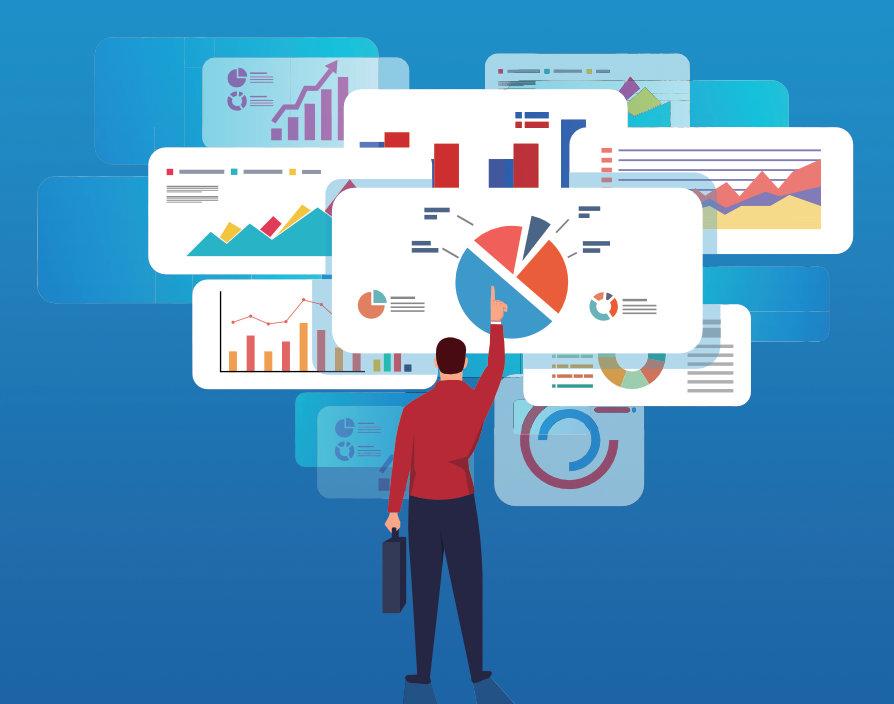I’d argue that anyone who works either in, or with businesses knows that financial forecasting has always been critical for a small business, but equally, it can be overlooked in the general day-to-day operations. A focus on financial forecasting may not always be at the top of the to-do list and not all organisations have a CFO or finance team easily at hand to help them understand and interpret the data.
As business owners continue to journey through uncertain times – not least rising costs across the board, spiraling overheads and often crippling global supply chain issues to name just a few, understanding your numbers has become more important than ever for a business and its stakeholders. Beyond just understanding your numbers, it’s about being able to model and understand scenarios quickly, plan for sudden change, and oversee the current pulse of your business.
In short, understanding your businesses story, (and being able to show that using forecasts) is becoming fundamental to a company’s long-term prospects and sustainability.
Why should a business owner consider forecasting?
Firstly, building a forecast can help businesses plan and budget their finances much more effectively. This sounds obvious perhaps. Yet, even at the height of the pandemic fewer than 27% of businesses had prepared a business forecast, even at a time when understanding your numbers was key to making informed decisions around finances, resources and sometimes even business survival.
Secondly, forecasting enables a business owner to anticipate their cash flow, allowing them to identify potential cash flow issues and take necessary actions to avoid potential challenges and pitfalls. According to the Credit Protection Association, around 50,000 UK businesses fail every year due to a lack of cash flow. Understanding the impact of late payments cash flow is especially important for small businesses – especially those that may have limited cash reserves to fall back on.
Thirdly, financial forecasting helps businesses to manage risks better by forecasting future revenues and expenses, allowing them to quickly identify potential risks and take measures to mitigate them. For example, if a business foresees a drop in revenue in a particular quarter, they can take steps to reduce costs or increase marketing efforts to avoid that shortfall.
Finally, financial forecasting may be required by lenders and investors; a detailed financial forecast can demonstrate that a business has a clear understanding of its financial situation. This was specifically relevant and important during the pandemic where businesses had unprecedented financial stresses put upon them and some had to go to banks to obtain lending for the first time.
Forecasting should be an essential aspect of financial management for a small business – whether direct or via an accountant or business. It enables business or clients to make informed, timely and ‘live’ decisions around their company, ensuring that it is financially stable and sustainable over the long term.
Why might an accountant undertake forecasting for their clients?
Having accountants undertake forecasting for small businesses has several advantages. Accountants have the expertise and experience to generate accurate forecasts quickly, using sophisticated financial models and tools but delivering them in a way that can be easily understood and actioned. This is where custom KPI’s (Key Performance Indicators) can come into play.
An accountant can provide an unbiased perspective on a small business’s financial health and can take a much more realistic approach, facilitating difficult conversations that may not otherwise take place.
Equally, delegating forecasting to accountants can save small business owners time, allowing them to focus on other important aspects of their business, rather than building potentially complex financial modeling. Most accountants handle forecasting every day and understand the technology which will allow them to produce meaningful reports more quickly and efficiently.
During the pandemic, accountants became a critical resource for their small business clients – the relationship between accountant and client was never stronger. However, beyond those extraordinary times, accountants continue to play a critical role in the financial forecasting and health for SME’s. Their expertise, knowledge and understanding of the businesses they represent as well as their holistic view of the the the wider business climate and regulatory requirements is core to a business’s long-term plan. When you combine this with statistical analysis, advanced financial modelling, and the implementation of forecasting software itself, it’s clear to see that accountants can help to take the understanding of a business and its numbers to the next level.
Businesses continue to face unpredictable times driven by the impact of leaving Europe and global supply chain issues. One of the best ways to mitigate risk is by having a thorough and granular understanding of your numbers – past, present, and future. Creating forecasts, tracking key performance indicators, and working with experts, such as accountants and business advisors, can take that understanding to an even greater level.
- KPMG – The supply chain trends shaking up 2023
- The Corporate Finance Network – small businesses getting on top of future finances…
- The Credit Protection Association – half of SMEs suffer late payments
Share via:









































